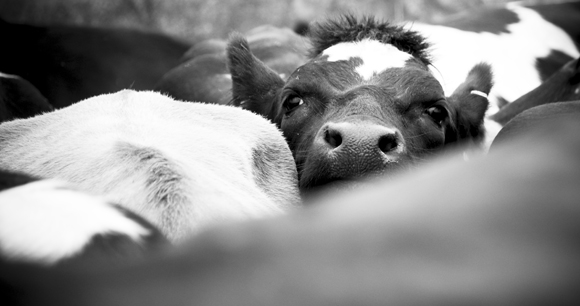The perils of overseas animal transport were recently underscored when 21 cows perished on a barge traveling from Honolulu to Kauai. While the animals were inspected at the port—per Hawaii regulations for preventing the transmission and introduction of diseases—no inspections were made to ascertain whether the barge or the containers the animals were in were suitable for transporting animals. Unfortunately, the containers holding the animals were placed too closely together, limiting ventilation and causing the cattle to slowly die of suffocation during their journey. Simple precautions could have prevented the prolonged suffering endured by these animals.

Following this tragedy, lobbying efforts by AWI and Animal Rights Hawai‘i helped convince the Hawaii Department of Agriculture (HDOA) to commit to amending its regulations to include standards for the care of livestock shipped by sea vessel. The new animal transport regulations should help keep such grim incidents from happening again.
Shipments of live animals from the United States to foreign countries are subject to federal regulations requiring an assessment of the animals’ fitness to travel and adherence to basic standards concerning the suitability of vessels. These changes were the direct result of a rulemaking petition submitted by AWI and the World Society for the Protection of Animals (now World Animal Protection) in 2011. The petition was largely premised on ensuring US compliance with international standards for animal export set by the World Organisation for Animal Health.
However, the federal standards do not apply to interstate or intrastate shipments. It is critical, therefore, that states step up to make sure that the animals are protected during these trips. Even short trips can present serious welfare risks for animals, and sometimes animals on interstate voyages—in particular, voyages from the mainland to Hawaii—will travel distances that far exceed those of some international routes. For example, a trip from California to Hawaii can exceed 2,500 miles, whereas an international journey from Florida to the Caribbean could amount to less than 1,000 miles. There are currently zero laws to ensure that animals on these interstate voyages are fit to make such a journey, or that would protect them while at sea.
The HDOA committed to base its new regulations upon federal export standards, which include provisions to ensure that animals do not suffer or die from preventable causes. Among the basic requirements are access to food and water, proper ventilation, and proper care for sick animals. Animals will also be inspected to determine whether they are fit to travel these journeys in the first place.
The promulgation of these regulations will make Hawaii the nation’s leader in ensuring animals transported on sea vessels are properly cared for and that the transport of animals is less stressful and more humane. AWI applauds the state’s efforts to protect these animals, and hopes that other states transporting animals on ocean journeys will draft similar measures.